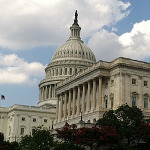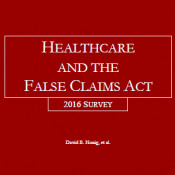Blue State Attorneys General Leading the Resistance to Trump’s Agenda
With Democrats outnumbered in Congress, a coalition of blue state attorneys general has emerged as the strongest resistance to Donald Trump’s conservative agenda, according to an article published by Bloomberg Businessweek.
“Together they’ve notched back-to-back victories against Trump’s two attempts to instill a travel ban against several Muslim-majority nations. They now hope to build on that success to form a united front against Trump’s expected efforts to roll back financial and environmental regulation, plus the GOP’s planned repeal of Obamacare,” says the article, written by Erik Larson, Esmé E Deprez and Kartikay Mehrotra.
They quote Bob Shrum, a veteran Democratic strategist who teaches political science at the University of Southern California, who says that by notching wins against Trump, state AGs can help make up for Democrats being in the minority in Congress
Read the Bloomberg Businessweek article.












